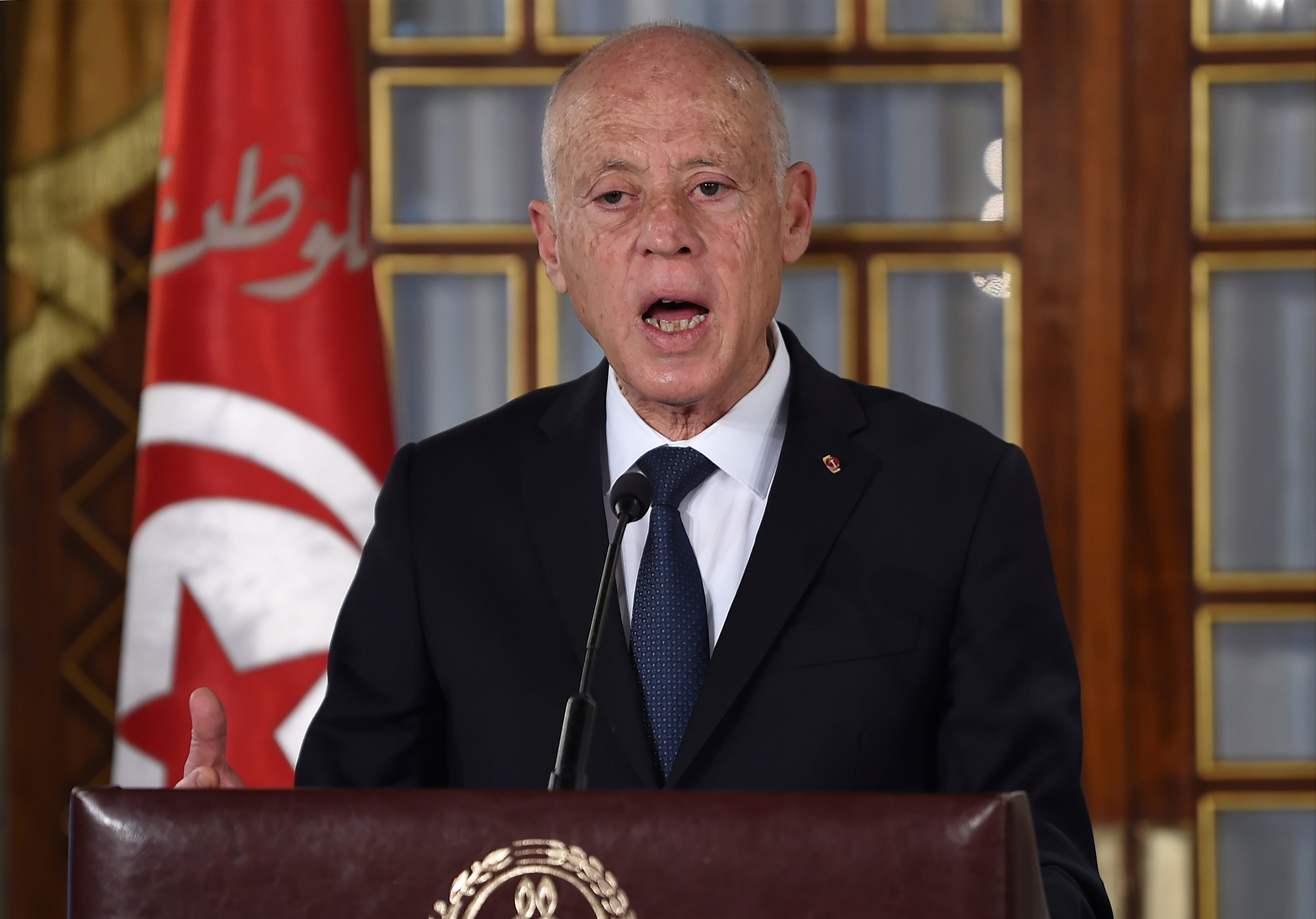Tunisian president's remarks on Storm Daniel have been denounced as antisemitic and prompt an uproar
Tunisian President Kais Saied’s remarks that have been denounced as antisemitic have prompted an uproar on social media across the world

Tunisian President Kais Saied ’s remarks about Storm Daniel have been denounced as antisemitic, prompting an uproar on Tuesday on social media platforms across the world following floods that devastated a Libyan city.
Speaking during a government meeting on Monday, Saied pointed to the name Daniel, which was chosen for the storm, making the link with the name of a Hebrew prophet, in a video broadcast overnight on the Tunisian presidency's social media.
“Didn’t anyone wonder why the name Daniel was chosen?” Saied asked, adding: “Because the Zionist movement has infiltrated minds and thinking, we’ve fallen into a cognitive coma.”
The storm destroyed entire neighborhoods in the Libyan city of Derna, killing thousands of people.
Names of storms are chosen by meteorological authorities through a alphabetical list alternating female and male easy-to-remember names. Daniel is a very common name across the world.
Many scholars and human rights advocates denounced the remarks on social media.
The U.S.-based Anti-Defamation League, a Jewish civil rights organization, “strongly” condemned Saied's words as antisemitic comments that “resonate with some of the worst conspiracy theories of Jewish control of the weather,” according to a post on X, formerly known as Twitter.
The Union of French Jewish Students tweeted that Saied “reiterated intolerable anti-Semitic comments.”
Saied also suggested that U.S.-sponsored talks to issue normalization agreements between Israel and some Arab states were connected to “Zionists abroad.”
“Normalization for me is a major betrayal. The rights of the Palestinian people must be exercised throughout the entire Palestinian territory,” he said.
In 2021, Saied denied accusations that he made antisemitic remarks while trying to calm youths after days of unrest.
Saied’s statement was in response to allegations by the Conference of European Rabbis that he accused Jews of being responsible “for the instability of the country.” The statement, relayed by some Israeli media, caused an uproar, forcing Saied to address the allegations, which his office firmly denied.
Bookmark popover
Removed from bookmarks